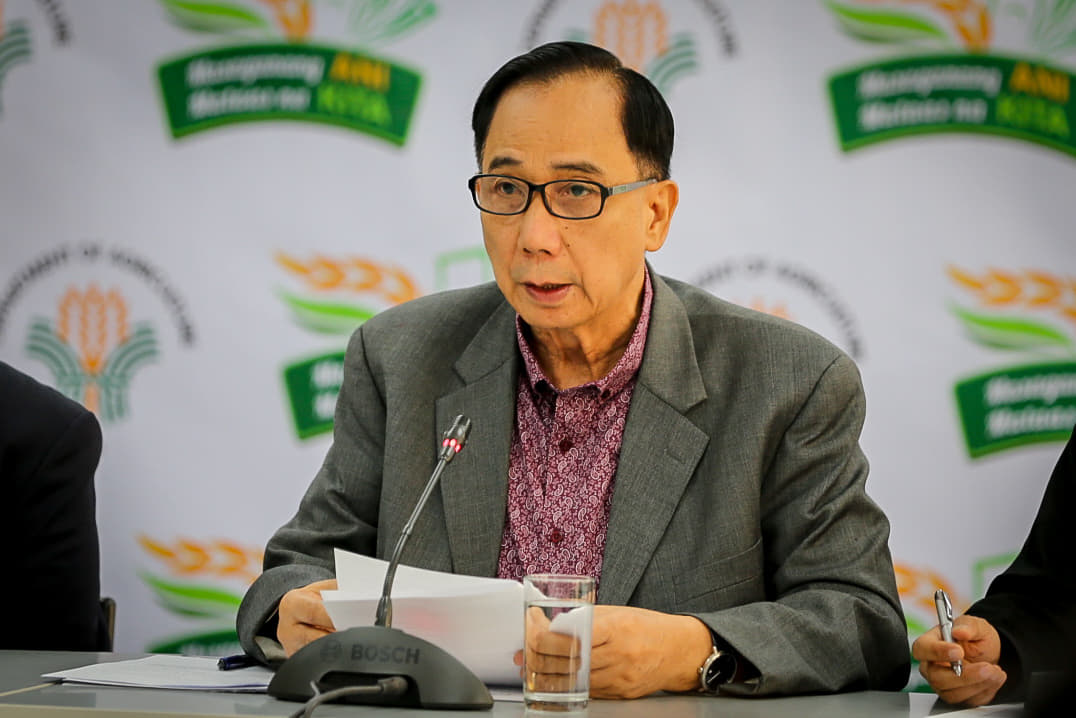
Ushering the new year, Agriculture Secretary William Dar reported the plans and programs of the Department of Agriculture (DA) in the coming months, including medium- and long-terms, during a press conference on January 3, 2020.
Dar issued Administrative Order No. 1, Series of 2020 establishing the policy framework and strategies for inclusive agri-industrialization and “new thinking for agriculture.”
“I have directed all DA-Regional Field Offices (RFOs), bureaus, attached agencies and corporations, DA-OSEC units, and foreign- and locally-assisted projects to adopt appropriate approaches and principles as we implement our programs based on our ‘new thinking for agriculture’ and its eight paradigms,” Dar said.
In addition, the Agri chief mentioned to undertake the following:
- Conduct a comprehensive review and audit of the list of farmer- and fisher-beneficiaries to ensure the sustainability and increase the beneficial impact of our programs and projects;
- Develop a web-based information support system, called the Agri-Information Support Portal, to provide more efficient sourcing of timely agri-fishery information and data to aid in better policy decision making;
- Create a technical working group that will review and update the DA-wide rationalization plan, that is in line with Executive Order 366 that deals on the strategic review of our internal operations of respective DA family units and organizations;
- Establish an agriculture PPP or public-private partnership support system to formulate the necessary programs, partnerships and other mechanisms to hasten investments in much-needed agri modernization and industrialization, or simply our version of “Build, Build, Build” infrastructure and agribusiness ventures; and
- Adopt a quality standard performance to institutionalize a system of quality management, transparency, institutional accountability and due diligence, through, but not limited to, ISO 9001:2015 certifications.
Dar also mentioned several imperatives including the development of an improved national agriculture logistics system to speed up and reduce transport and distribution costs from production to consumption areas, including export destinations.
“We will continue to touch-base and strengthen our alliances with major agri-fishery stakeholders and partners via direct consultations, aware that their support and participation are vital and critical to the success of our programs,” Dar concluded. ### (DA Communications Group)













